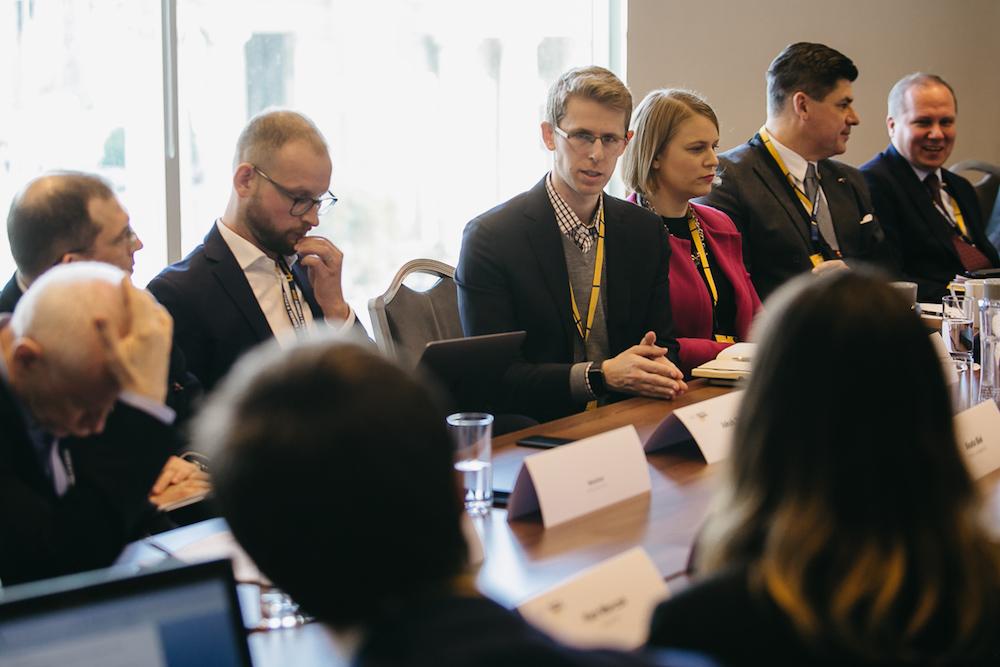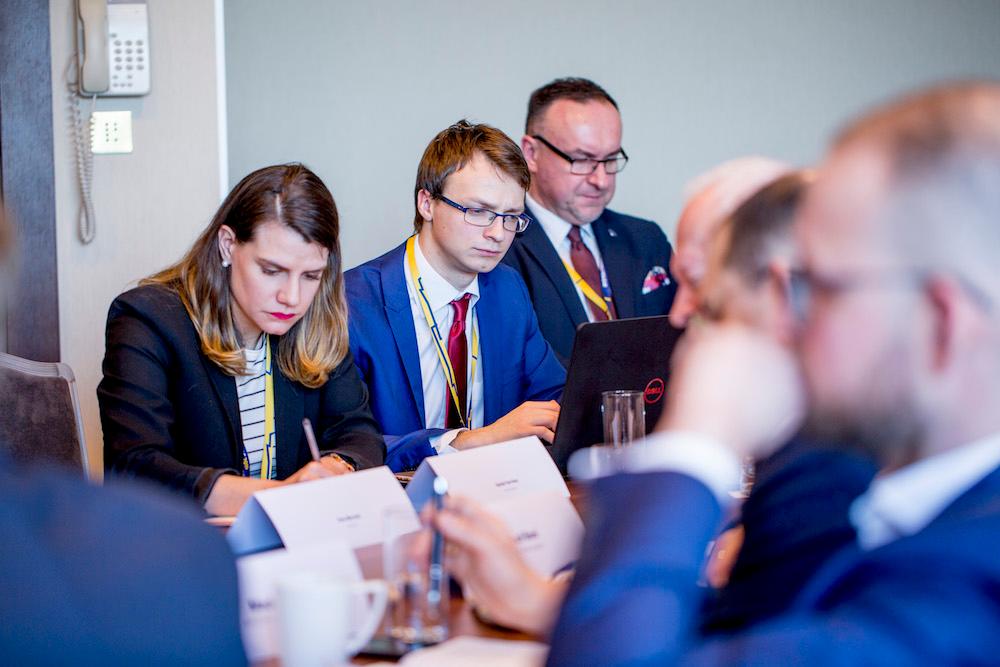Takeaway
David Agranovich: Disinformation is an arms race. In his keynote presentation, the Threat Disruption Lead at Facebook defined coordinated inauthentic behaviour as “groups of pages or people which work together to manipulate or mislead people about who they are or what they are doing for a strategic goal.” According to Agranovich, Facebook works to take down such behaviour throughout the three crucial phases of their existence - creation, seeding, and amplification. It uses AI to identify and remove fake accounts, and expert teams of investigators to identify and take down more complex networks. Bad actors, however, have grown more sophisticated by co-opting legitimate accounts and blending false information with the truth. Agranovich noted that “one of the biggest challenges for social networks are inauthentic actors blending into real communities.” He added that Facebook had not yet seen widespread attempts to interfere in the European election but “it doesn’t mean that we’re not going to see them.”
Anika Geisel: Transparency tools for political ads. The head of public policy for elections in the MENA region at Facebook outlined details on what Facebook will be doing ahead of the European Parliament elections in May. Those seeking to buy political ads (campaign or issue-based*) will need to confirm their identity and location. Facebook has also unveiled an Ad Library, which is a publically-accessible database of political advertisements that will include information on who purchased the ad, the ad’s impact, and demographic information on its audience. The suite of election-related transparency features will be unveiled in Europe in late March 2019.
Michał Boni: We need collaboration of all stakeholders. The MEP discussed the need for comprehensive, multi-stakeholder engagement in dispelling fake news and eradicating bad actors from online spaces. He encouraged governmental agencies, academic institutions, and media outlets to work together. He pointed to initiatives at the European level that could serve as a framework for future engagement in member countries, specifically citing the EurCom Code of Practice on Disinformation that was developed in September 2018. However, he cautioned against imposing legislation at the European level, saying that blunt measures to ban fake news would not be able to address such a complex issue.
Robert Kośla: National agencies are developing cyber threat responses. The director of the Cybersecurity Department at MinDigi emphasised that the ministry is analysing election threats with the National Election Bureau (KBW) and plans to conduct a table-top exercise on election security. Kośla touted work on the National Cybersecurity System, the scope of which was which was specified in a law introduced in Autumn 2018 – its goal is to identify critical IT infrastructure in Poland and develop a coordinated response mechanism in the event that a cybersecurity incident takes place. MinDigi discussed also a packet to regulate disinformation but decided not to proceed because the regulations would be similar in form to the voluntary standards outlined at the European level.
Beata Biel and Łukasz Lipiński: Media literacy requires access to data. The investigative reporter from TVN24 pointed out that reporters and research institutions would benefit from accessing the data that Facebook had been collecting on phoney content. Biel added that this could help educational initiatives training citizens to better evaluate news. The Editor-in-Chief of Polityka.pl added that ”misinformation has always been there” but today's disturbing trends include the promotion of fake content by state actors. Lipiński cited a news video widely shared on Facebook that misrepresented the politician Guy Verhofstadt; the material turned out to be sponsored by the Hungarian government.
Richard Lappin: Election monitors recognize emerging threats. The deputy head of the OSCE's Office for Democratic Institutions and Human Rights said that the organization had been tracking online environments as part of its election monitoring efforts across Europe. Lappin encouraged participants in the round-table to submit recommendations that could be included in the final election report for Poland. National governments must demonstrate that they considered the OSCE's recommendations, so soliciting input from relevant stakeholders early on could facilitate useful cooperation before and after Poland's two elections in 2019.
Jakub Turowski: Fact-checking and public-private partnership to grow in Poland. Facebook's head of public policy for Poland and the Baltics would like to introduce fact-checking mechanisms for Facebook in Poland. This initiative, which already exists in other countries, involves working with third-party fact checkers to evaluate the veracity of content. Those ratings contribute to the down-ranking of false stories in order to limit their visibility. In Poland, Facebook also launched a partnership with the Polish Press Agency centred on media literacy and online education. ![]()
The round-table discussion ”How to ensure the security of elections in the digital era and defend democracy online” was organized by Polityka Insight in partnership with Facebook as part of the Risks & Trends 2019 conference. Discussants from Facebook included Jakub Turowski, the Head of Public Policy for Poland the Baltics, Anika Geisel, the Public Policy Lead for Elections in the MENA region, and the keynote presenter, David Agranovich, Facebook's Threat Disruption Lead. Invited participants represented Polish government ministries, private business, international organizations, and media outlets.
*Ads which don’t mention a candidate or political party but do discuss highly-debated and important topics.











